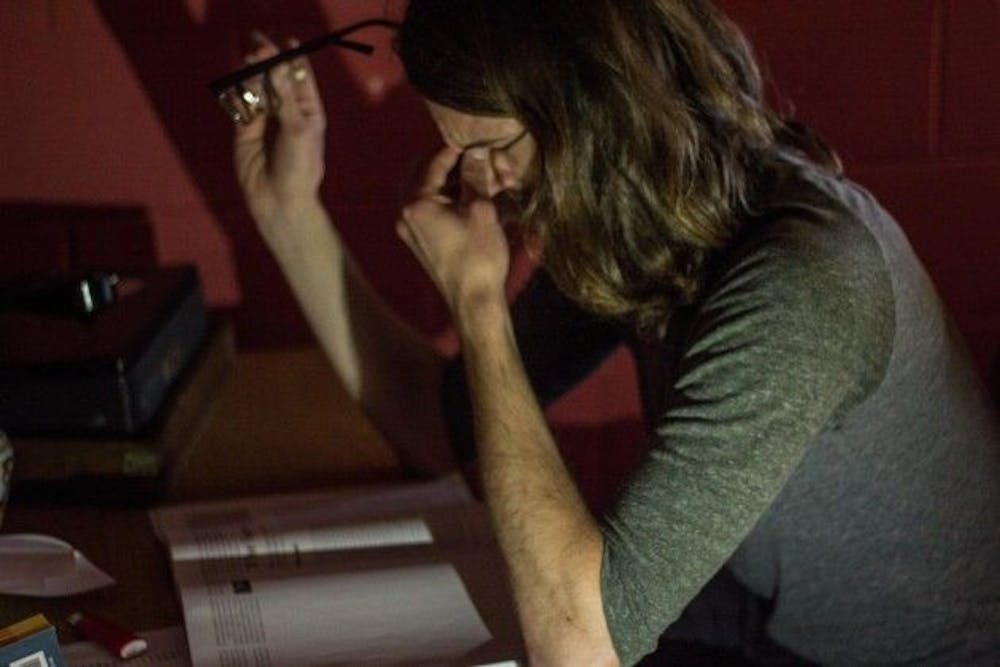There's nowhere to run. There's nowhere to hide. Finals week is coming-the time during each semester that send students into a panic.
The tutors of the on campus Educational Support Program work closely with students in effort to raise their grades and overcome the dreaded final exams.
"I would recommend looking over your older tests," 21-year-old Luke Hurst said.
The junior chemistry and biology major also advises students to work with their professors.
"Go to office hours," he continued. "Especially if you're like on the borderline of a grade."
Jonathan Jenkins, a senior biology major, stressed the importance of a full night's sleep.
"Don't pull all-nighters. Your brain is actually reviewing what you learned while you're sleeping," Jenkins said.
According to information gathered from the Franklin Institute, when a student pulls an all-nighter in an attempt to retain more information, the sleep loss actually affects learning and memory.
His colleague, 21-year-old Decoda Muller, has his own technique for studying and sleeping.
According to him, it's better to go to sleep and wake up early to finish looking over notes than it is to try cramming all of the information in over the course of one night.
"I wake up at least two hours before my exam. Well, two hours before I have to walk out of the house, so even earlier, and I look over my material. You actually retain the information better than you would with an all-nighter," Muller said.
Jenkins said that you perform better if you don't interrupt one full REM-cycle.
REM, which stands for rapid eye movement, is a stage of sleep where your eyes randomly move, signifying brain activity similar to that when you are awake. Most dreams occur in this cycle.
In addition to a good night's rest, the tutors recommend flash cards as an effective studying tool.
"The process of making flash cards can help you establish what is important," Hurst said.
Many students are accustomed to making flash cards for vocabulary in language classes and for math and science equations, but according to Jenkins, cards are also beneficial in lecture classes.
They all recommend using quizlets.com. Quizlets is a flash card website that enables students to create their own cyber cards or use ones made in the past by other students.
Muller admitted to seeing a fantastic rise in his grades as a result of using Quizlets.
"I was not big on flash cards," Muller added. "You have to make them, they take up space and I'm killing trees. I just truly hated them, but I can make flash cards on Quizlets from the convenience of my cellphone."
Quizlets.com and its subsequent smart phone app are free.
Another point the tutors mentioned was prioritizing.
Jenkins believes prioritizing enables you to study constantly throughout the semester, and it is the first step to approaching studying for finals.
As for essay exams, Jenkins promotes familiarizing yourself with the material while Muller suggests talking to classmates.
"Bother your friends. That's what I did," Muller said jokingly.
As for the day of the exam, Jenkins said be sure to eat breakfast, and Hurst strongly recommended using the restroom before the test starts.
"I learned that one the hard way," Hurst admitted.
For all exams, these tutors emphasized the importance of not "psyching yourself out" and over-worrying.
"I used to have that bad," said Jenkins.
He would know the information but panic during tests and second-guess himself.
"I (learned) to slip out of my head. Think about something other than the facts for five seconds. That helps a lot," he said.
Communications instructor Gray Matthews suggested that students clear their minds. According to him, panicking only makes both studying and test-taking that much more difficult.
He stated that every situation is different, and the key is in understanding how your own mind works.
"Thinking requires mental energy, so don't waste that energy thinking about a million other things, or lose the energy by trashing your body," Matthews said. "Listen to whatever kind of music most relaxes your mind if stressed, stimulates your mind if paralyzed by fear or lifts your mind if down. Listen to music that reminds you that you are a unique living wonder and not a mass-produced functional product."
As for when students should start studying, Muller, Jenkins and Hurst all agree that it depends on the student and the class.
"I stay up to date on the material, so I don't have to study as much," Hurst said.
Jenkins recommended a week. He also said students should repeatedly test themselves.
"Repetition really solidifies what you learn," Jenkins said.




